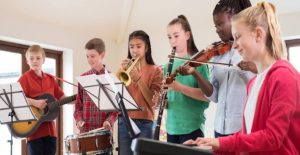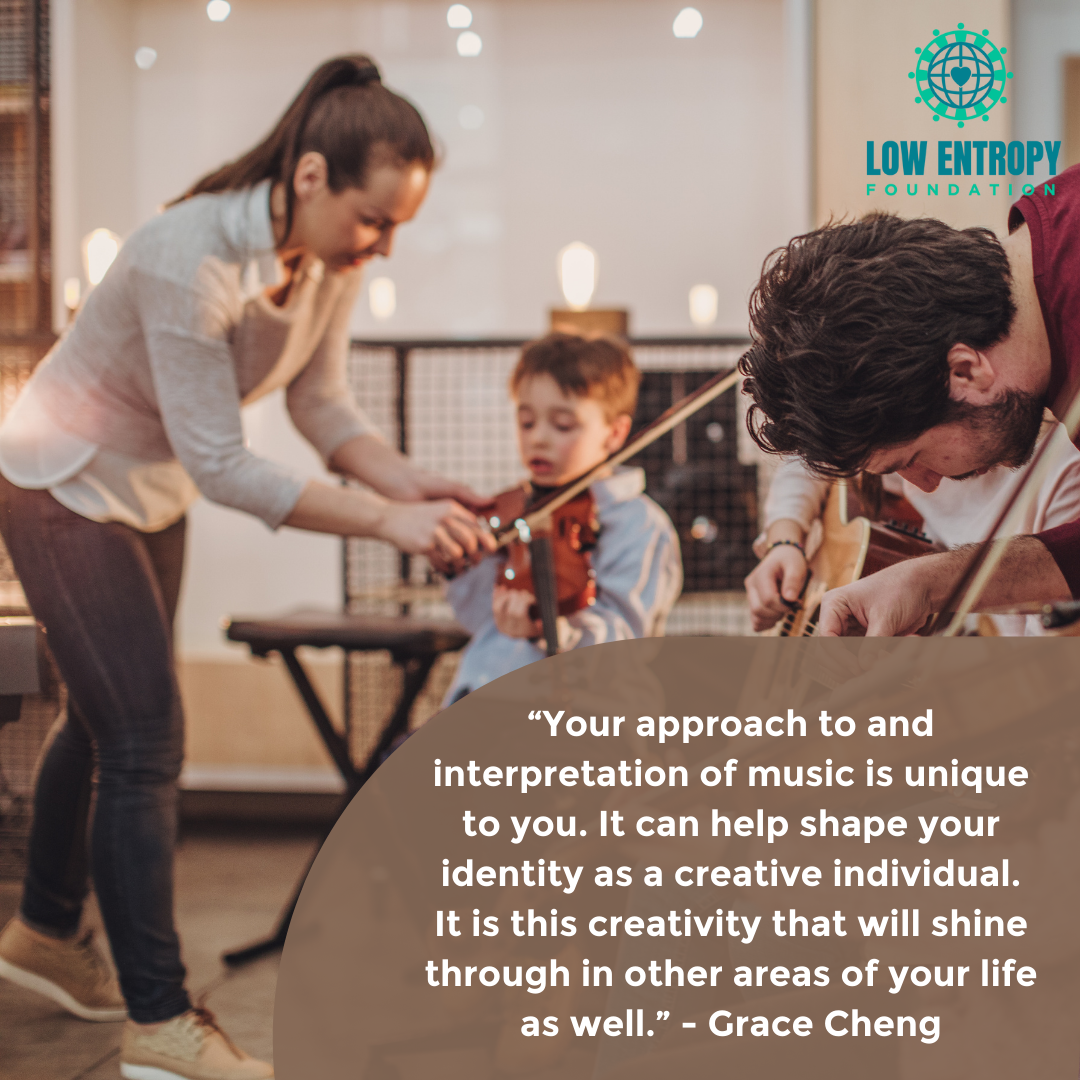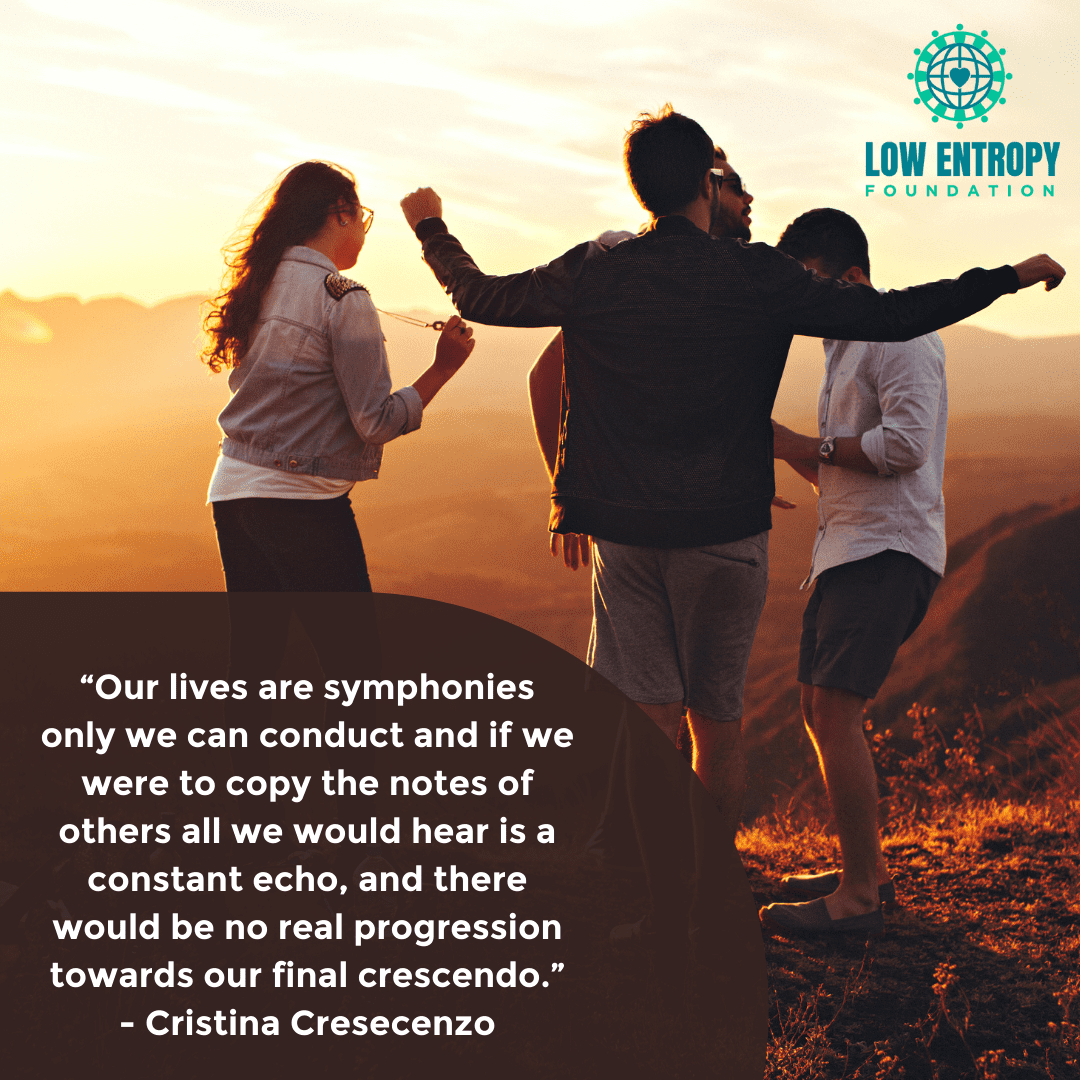Grace Cheng (she/her/hers), Low Entropy Volunteer Writer

Learning music is one of the most beautiful things anyone can do. Music is beneficial for human health. The practice of learning a musical instrument offers countless benefits for people in terms of multifaceted development. Performing music has a positive impact on the human brain. Playing music keeps the human mind active, and the creativity and concentration required sharpens it
.
The study of music touches on all aspects of learning. These are the psychomotor, cognitive and affective components. The psychomotor element of music education emphasizes the development of mechanical skills in playing instruments. The cognitive portion focuses on the acquisition of musical knowledge. The affective component emphasizes the appreciation of music. Music also stimulates language development and develops collaborative skills. Furthermore, it enhances logical thinking, hand-eye coordination and listening capabilities.
Skills Learned from Music
- Language and Reasoning Skills
Children who receive early musical training will develop areas of their brains related to language and reasoning. Music develops the left side of the brain, which can affect how information is imprinted on young minds. As children learn their instruments, they gradually become accustomed to the nuances of a variety of sounds. In this way, their ears are trained to recognize the subtleties of speech and language.
- Muscle Development and Coordination
When children play instruments, they can use their entire body to maintain rhythm. Musical instruments can also develop motor skills that involve coordinating different parts of the body simultaneously. You can develop excellent hand-eye coordination while playing musical instruments.
- Problem Solving
Music is not always a simple subject. There may be difficulty in reading the score, executing a complex technical section or determining motivation. You will discover that there are ample opportunities to come up with creative and unique solutions to musical challenges.
- Creativity
You can express yourself creatively by playing music. Your approach to and interpretation of music is unique to you. It can help shape your identity as a creative individual. It is this creativity that will shine through in other areas of your life as well.
- Social Skills
When you play music in a group, you must learn to work together toward a common goal, manifesting tolerance, patience and encouragement with your peers. Music can help you develop social connections with other people.
- Spatial Intelligence
Studying music can provide students with the opportunity to develop spatial intelligence, which will enable them to form mental pictures and perceive the world accurately. It has been demonstrated that pitch and rhythm have a significant impact on spatial reasoning skills.
- Emotional development
Individuals often develop their emotional maturity while developing empathy for other cultures through learning music. They also tend to have a higher sense of self-esteem and a more effective ability to cope with anxiety. Feeling the emotional power of music and engaging in the practice of expression enables one to better recognize the emotions inside oneself.
- Discipline
Learning an instrument can teach us important lessons about discipline. You will have to set aside time for practice and rise to the challenge of being disciplined to master the playing of an instrument.
- Thinking On the Spot
Music requires you to make numerous split-second decisions over and over. This requires you to think quickly on your feet. Over time, you will become extremely adept at detecting small mistakes and surprises in the music, while adapting to unexpected outcomes.
- Coping and Stress Management
Practicing music offers you an outlet that you can turn to when dealing with stress or other challenging situations. The act of playing music is also very therapeutic. The ability to cope through music is a valuable tool that can assist in balancing out life’s many difficulties.
Are you interested in learning music? Cross-curricular and lifelong skills await you as music’s valuable benefits.
—
Grace has an accounting and finance background. She enjoys reading, writing, listening to music, watching movies and playing sports.








